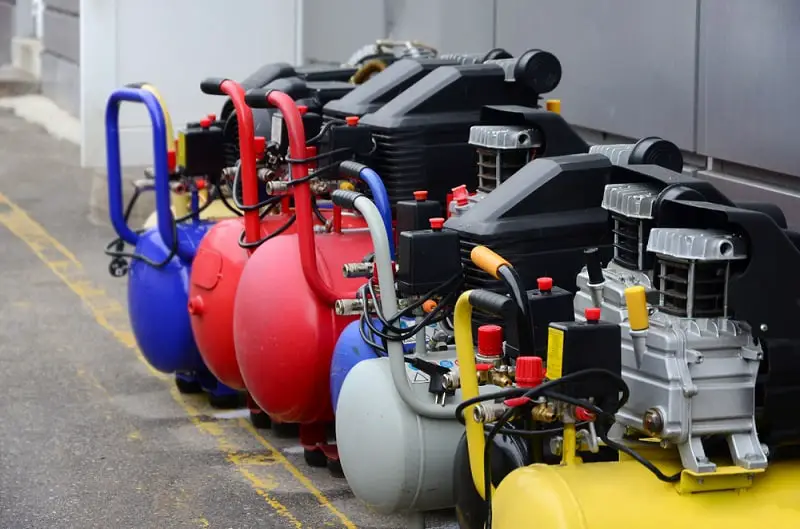
One of the biggest problems for people is that they end up buying the wrong size of the air compressor for a certain project. It is a known fact that air compressors can get expensive and purchasing a wrong one can be a real problem. Moreover, an air compressor that is too small might breakdown or not get the job done if you let it exert too much pressure. Hence, below are a couple of factors to take into consideration before purchasing an air compressor.
What Size Of Air Compressor Do You Need?
Before purchasing an air compressor, you need to ask yourself this important question: What will I need this air compressor for?
In the storage tanks of the air compressor, there is high-pressure air building up. That air is what gives power to the tools that are fixed to an air compressor and can be utilized for a large number of applications.
An air compressor can be used for:
- Giving power to pneumatic tools such as drills, nail guns, jackhammers, paint sprayers, and etc.
- Transferring of air to fill tires, for instance.
- For the purpose of cleaning.
- Industrial applications on a large scale.
Hence, with these various uses, you need to figure out the size of an air compressor that you will need. Below are the steps that you need to go through in order to figure out the size of an air compressor that is ideal for you.
- List down all of the tools you will use and their air requirements.
- Calculate the amount of CFM that you need.
- Think about the duty cycle and the size of the tank.
Another factor to think about is the airflow requirement of your tools. Air tools, such as the sandblasters, need continuous airflow. On the other hand, smaller tools, such as a nail gun, will need an intermittent airflow. If you will be working with tools that have a continuous airflow or using those tools for a long period of time, then you should consider an air compressor with a big air tank or a 100% duty cycle. A bigger air tank will have enough space to store air that should be enough for your application.
Furthermore, air compressors tend to build up condensation in the air tank when you use them for a long period of time. Due to this, the room for pressurized air decreases and it becomes difficult to work with your tools. That is why if your air tank is bigger in size, it is less likely to affect the performance of your air compressor.
In the end, air compressors tend to turn on when they are required to have more pressurized air in the tank and once the tank is full, it turns off. The larger the air tank, the less strain is placed on the motor; hence your compressor will have a longer life. Plus, in order to keep up with the air tool, your air compressor should have a good flow rate too.
Related Video:
